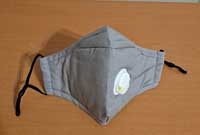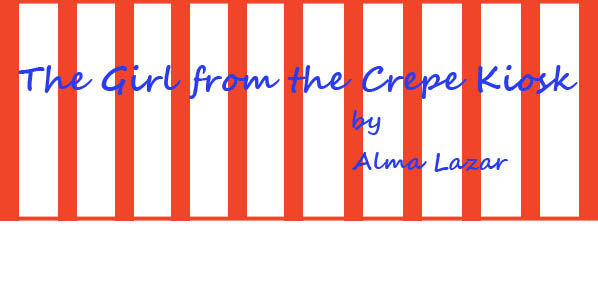1.-

AFTER THE PANDEMIC
It was January 2020. We were initiating that charismatic year that everyone had been anxiously expecting, the closing year of the second decade of the third millennium. The resolution’s list seemed endless, marriage engagements, weddings, the beginning of new businesses, and hopes of success. Expectations floated in the air. Unfortunately, the disappointment did not long in coming.
Just at the beginning of the second month, the news of a pandemic with its origins in China, making its entrance to some European countries, started to circulate in America.
For those of us who had not experienced the pain that a pandemic of such magnitude can cause had no idea of the times looming.
It was in the third month when some of us started taking it seriously. Others, still not believing, opted to think of it as a political strategy. Soon after, the panic spread. Groceries and cleaning articles, among others, got scarce, and the cities were paralyzed. Unemployment advanced with giant steps, people fighting for their lives, hospitals were at full capacity, and the more the infection spread, the risk, and the fear became out of control.
In the last year’s trimester, we were still waiting for the end of this pandemic that caused so many human and material losses, which brought along loneliness, isolation, exhaustion, fear, insecurity, but above all, a great deal of pain.
But what comes after this? THE LEARNING PROCESS.
We learned that we must prevent. We need to prepare for any catastrophe. And up to our abilities, we must store food and first necessity items. We awoke to condemn the abuse of our beaches, our marine fauna, and our natural resources. We understood that it is OK to occasionally miss cocktail hour with our friends and replace it with an enjoyable afternoon stroll with our family. We experienced the satisfaction of open-air activities with our loved ones. Teenagers learned that it is OK to play with their younger siblings and that spending quality family time creates more strong pillars in our society.
We learned that we should not save hugs or signs of affection for those we love for a later time. We realized that there are heroes that expose their lives every day with their jobs, and we can’t thank them enough and express our admiration for their courage.
But perhaps the most important learning was that we live in a harsh world full of badness, but the good is above all because we learned to unite ourselves. And we realized that difficult times bring out the goodness of the human being and when we experienced hunger and need, help surfaced from below the earth, donations from those who had and even from the ones who did not, spread limitless.
All of us tried to support each other with words and acts of kindness. We all are in the same boat and close to initiating the rebuild process. And if we need to start all over again, we will. We know that there is always tomorrow. And if we learn from our experience, tomorrow will always be a better time.
Non-fiction article by Alma Lazar, author of the book
WHEN THE LIGHT GOES OUT
2.-

It is only 9:30 in the morning, and the mall is still not crowded. On this beautiful sunny Sunday, my husband and I decided we wanted crepes for breakfast. As we are ordering, I focus my attention on the girl taking our order inside the little crepe kiosk. Due to her heavy accent, I assume she is Russian. She doesn’t have a name tag, but I decided to name her Ludmila. She is probably five feet, six inches tall, and her skin is noticeably white. I wonder if she is a vegetarian. Her braided blond hair, interlaced at the top simulating a headband, gives her a nice clean appearance, perfect for her job. Her tiny apron from her waist down doesn’t diminish her slim figure, she’s wearing tight jeans and a black t-shirt with the logo of the Café she works for, and her white canvas shoes seem so comfortable, that it gives the impression she is walking on clouds. She looks like a smart girl. She is probably a student from the University, working on weekends and perhaps on the late mall shifts as well.
Ludmila is not wearing any makeup. She is not there to impress anybody. And she doesn’t need to impress with her physical appearance, her warm smile and her genuine personality set her apart.
My husband and I sit at the little tables with umbrellas outside the kiosk. While we wait for our crepes to come out, we enjoy watching the morning strollers, most of them with their pets treating them to a nice Sunday walk at the mall. Today is probably the first warm morning of this winter. Ludmila cannot feel the sun rays that bathe our faces, she is inside the kiosk, but she seems very comfortable in her little world. The temperature inside seems perfect.
As I watch other people passing by, I glance at Ludmila, who is obviously, enjoying her job and showing her passion for it. She switches between taking orders and making coffees. Looking often at the computer on the wall to make sure every order is perfect. I can’t help noticing how cautious she is while measuring the amount of coffee or tea and how she adds her personal touch with a pretty design on each one of them.
My delicious chai latte looks cute with the little heart shape she draws on the foam on each of the coffees and teas. My husband’s espresso is too tiny to have a design like mine.
Even though the crepes originated in France, it seems like in America, most people like to eat their savory crepes with hot sauce. As I thought, Ludmila is not only passionate about her work but also professional. Our crepes are ready. And the moment my husband asked her for a couple of Cholula salsa envelopes and some extra napkins, she smiled, showing him that she already had them in her hand.
Our crepes were exquisite, as well as the tea and the coffee. It was an enjoyable experience to stop by the little crepe kiosk on a beautiful Sunday on our way to church.
Non-fiction article by Alma Lazar, author of the book
WHEN THE LIGHT GOES OUT
3.-

THE BIG MISTAKES OF HUMANITY
It’s been 17 days of confinement in this depressing underground basement. I feel the unbearable urge to go outside, but no one in his right mind would get intentionally exposed to the danger of this war. If anything, I should feel lucky to have a place to hide. Would I have known what was coming I would have prepared myself; yet here I am, taking tiny sips of water every time I get thirsty, trying to make my drinking water last. Pretty soon, I will be running out of food. My water will be gone. My brain avoids the ache of thinking. I refuse to think about how much longer I will have to endure living like this.
It’s been 21 days now. I’m buried in trash. The paper towels and the napkins are gone. Only two rolls of toilet paper and very few tissues are left. My allergy is driving me crazy. My runny nose is not cooperating. I order my brain not to produce any mucus, but it doesn’t obey. I try not to use the bathroom, but what would I need to use the bathroom for? I’m barely eating, my strength is vanishing. I’m also losing my faith and my hope. And I also lost at least 15 pounds.
It is day 25. I don’t have any soap, and I don’t have shampoo. All I have is a pile of dirty clothes and greasy, stinky hair. I hate myself for stinking. I would give anything to be able to feel the freshness of clean sheets touching my clean body, smell the soft scent of shampoo, and see the reflection of my shiny hair in the sun. But I have bigger worries now. There’s no more drinking water. The water from the tap is barely flowing. A storm of fear starts invading me. “What if I run out of water?” All I’m eating is one sardine and two almonds a day. I’m trying to stay strong. I’m trying to survive.
I hear noises outside, and my heart pounds at triple speed, I try to cover my head with pillows, but it doesn’t help. I can’t deny what I’m hearing; THESE ARE WAR NOISES. Now my mind switches to the real victims here, the heroes who fight outside my little basement. They are the ones exposing their lives every day to save our country. I can’t imagine the ones who lost their sight as a consequence of a grenade explosion, the ones who lost their legs, or their arms. I think about the wives who kissed their husbands goodbye without knowing if they will ever see them again, nor the children that waved goodbye to their mother or their father perhaps for the last time. Now I’m getting the whole picture. And I feel guilty. How can I possibly think about my suffering, how could I even dare to feel? I feel selfish, sickly selfish.
It is day 29. Only one sardine left. No more almonds. I try to drink water, the same tap water that I did not use to drink before, and that made me sick at the beginning of my confinement because of the weird taste. The same water that pretty soon, I learned to cherish like a treasure. I panicked when I turned on the water faucet, and no water came out. I think this is the end. I’ve been hallucinating for the past three days. My brain can’t distinguish what is real and what is not anymore.
It is day 30. I get up, feeling extremely thirsty. I go to the kitchen and pour myself a big glass of water, out of the bottle, I can feel the intoxicating flavor of pure, crystalline alkaline water, I feel it passing through my throat, touching the walls of my mouth, I sense every drop. I’m in heaven. I glance through my kitchen and spot the bowl of fruit, oranges, apples, kiwis, and peaches. I grab one peach and start devouring it, I feel the juice running over my face and neck, I can taste its sweetness, and I explode in tears, the tears running down my cheeks blend in with the juice of the peach. I look through the kitchen window, and I see the blue sky, (my blue sky). I look at the trees and the palms outside my house. I look at the plants on the porch. I’m crying hysterically. I know I’m hysterical, but I’m not hallucinating. I pinch myself, and I know I’m alive, I’m for real. That is then when I start wondering. Was I hallucinating? Am I dead? Has this all been a bad dream? But I know I was there, amid the horrors of war, trapped in one of THE BIGGEST MISTAKES OF HUMANITY.
Fiction article by Alma Lazar, author of the book
WHEN THE LIGHT GOES OUT
